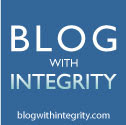After having a link sitting in my e-mail inbox since February, I finally watched the webinar Cataloging: Where are we now? Where are we going? with Karen Coyle and Renee Register. It was 90 minutes well spent.
If you follow Karen's blog or have heard her speak, there was nothing new or different in this webinar, but it was a nice summary of her position on library data. Karen is an advocate of sharing library data with other entities. She can also explain the semantic web and linked data in a way that I can almost understand. I've seen Renee's name, but have not heard her speak before. While her perspective may be a little different from Karen's, they are pretty much on the same side of the issue.
There is one (only one?) thing I'm still not totally clear about. I keep hearing (and not just from Karen) that other organizations are practically drooling over all of the data in libraries and if that data were more accessible it would be used - a lot. I'm all for sharing - after all I'm a librarian. However, I'm curious as to how library data would/could be used. I guess I don't have much of an imagination when it comes to things like this.
Karen has described research that maps when an author's work was published and compares that with when works about that author were published. Kind of neat, but not something I can see myself using on a day-to-day basis.
At the NETSL conference in April, one of the keynote speakers was Jon Orwant, Engineering Manager for Google Books, Google Magazines, and Google Patents. He talked about research in the area of language. The words in books can be mined to see word patterns, when a particular word first appeard, how often it appeared and frequency of appearance. This was another of the specific examples of how library data can be used. Linguists use this sort of information and, I expect, those who compile dictionaries and encyclopedias.
Still, I'd like to know of more examples of how library data could be used since I personally can't think of any. Regardless, I have no problem sharing and I'm happy to adapt library practices to facilitate sharing. After all, won't such sharing help raise the status of libraries in the eyes of the non-library world?
A byproduct of the webinar was that I learned about the Library Learning Network of the College of DuPage. During the academic year they offer a series of webinars on library issues. Unfortunately, there are no more scheduled until sometime in the fall, but the 5 they've offered since November are all available to view. I look forward to seeing what they offer next.
Wednesday, June 30, 2010
Subscribe to:
Post Comments (Atom)


No comments:
Post a Comment